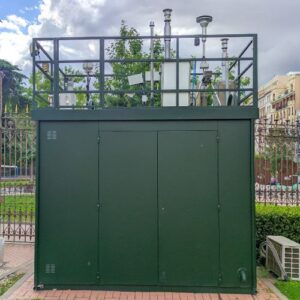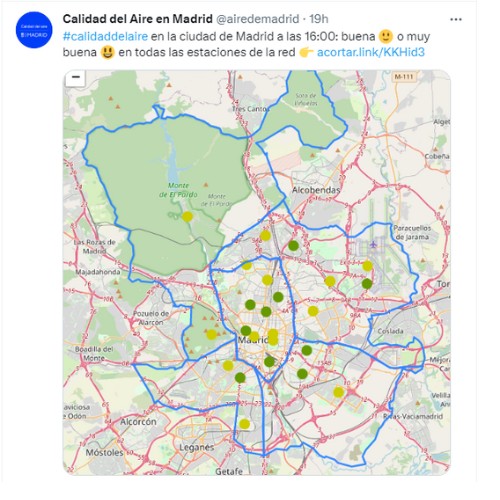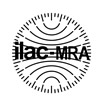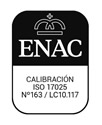The country’s capital is undoubtedly a strategic point in terms of air quality, given its population density, industrial activity and high levels of road traffic.
Since 2022, Envira has been responsible for the management, maintenance, acquisition and use of data, as well as informing the public about the levels of pollutants that affect air quality in Madrid.
What is the Madrid Air Quality Monitoring Network?
Madrid City Council has been monitoring and controlling air quality since 1968, initially using a manual network of sensors and, from 1978, an automatic network of fixed stations.
In 1998, it went one step further and developed an Integrated Air Quality Monitoring, Forecasting and Information System (SIVPICA, according to its Spanish abbreviation), which not only measures pollutant concentrations but also predicts pollution levels and informs the public.
All this history in the interest of improving air quality in the municipality, together with the demands of the citizens and the need to comply with the requirements of current legislation, means that this system is constantly being renewed and improved, with the criterion of always using the best available technologies.
Madrid’s air quality monitoring network currently consists of 24 air quality monitoring stations, 14 meteorological stations and a mobile unit to carry out additional measurement campaigns.
In addition, there is a thermal profiler, which measures atmospheric temperatures at different heights, and a Sodar: a meteorological instrument that measures wind speed at different heights above the ground and the thermodynamic structure of the lower layer of the atmosphere, both of which are used to anticipate episodes of thermal inversion, which have a direct impact on pollution levels.
The Integrated Air Quality Monitoring, Prediction and Information System has the following main objectives:
- Continuous measurement of environmental pollutants: SO2, NOx, CO, O3, particulate matter…
- Estimating the concentrations of certain pollutants in order to predict air quality levels.
- To provide the public with continuous information on air quality in Madrid through the website and other media.
- To monitor compliance with environmental legislation.
- To warn the population and other bodies when the predicted limit values are exceeded.
The challenge: to maintain and operate the integrated network of air quality in Madrid
In order to maintain an optimal level of operation and performance of the air quality network and its technological evolution in terms of data acquisition, processing and use, information to citizens and compliance with legislation, the City of Madrid, in collaboration with Envira, has carried out the following actions:
Initial diagnosis and set-up

When Envira took over the Madrid air quality monitoring network project, the first thing it did was to carry out an initial audit to diagnose all the existing fixed measuring stations and sampling points, as well as the meteorological stations, both in terms of instrumentation and software.
In this way, Envira has established that it has a stable and secure network in which to implement improvements and technological advances, such as the modernisation of the communication system or the replacement of certain equipment with the most advanced versions in terms of air quality analysis.
SIVPICA maintenance and management

In order to guarantee the constant accuracy of the monitoring instruments and the traceability of the measurements, 24 hours a day, 365 days a year, the City Council of Madrid requires preventive and corrective maintenance to minimise the possible loss of data and information.
To this end, Envira is responsible for carrying out maintenance work in accordance with UNE-EN standards and other applicable regulations, as well as other more specific operations of on-site verification and calibration of the equipment and components of the system. In the event of a malfunction, Envira undertakes to provide a response time of less than 2 hours, with availability on weekends and public holidays.
More efficient and accurate data acquisition

In terms of data collection, the network has an acquisition, processing and storage system for the data collected by the monitoring stations, meteorological stations, the mobile unit and complementary equipment.

The challenge? To implement a system in which both the immission and meteorological stations and the mobile unit communicate data homogeneously and according to the latest technologies.
The solution offered by Envira was to replace the acquisition system with ENVIRA DS, a current and standardised system in most of the air quality networks in Spain, whose main advantages are efficiency in data management and real-time processing.
Envira has also focused on network security, identifying risks, proposing solutions and assisting in their implementation, making the network less vulnerable to possible cyber-attacks.
Communication of data to the public and activation of protocols and scenarios

The air quality map of Madrid is divided into 5 zones where pollution is measured; depending on the values collected in each of these zones, different scenarios and alert protocols are activated.
An Envira team is in charge of the data exploitation: every day, the data acquired from the different stations that measure pollution in real time are checked, verified and validated, and in cases where the limit values are exceeded, the protocols for exceeding the limit values are activated in a joint management with the Madrid City Council.
These messages are sent to the population via SMS or Twitter, as well as through the specific mobile application or website, conveying the message in a graphic, easy-to-interpret and inclusive way.

In addition, all the data is available on a web portal, an open data portal, where historical data can be consulted and, of course, the relevant data and reports are sent to the relevant ministry and authorities.
The result: Madrid City Council now has a more accurate, secure and up-to-date air quality monitoring network
Envira is responsible for the management and maintenance of Madrid City Council’s air quality monitoring system.
The actions and measures taken have made this network much safer and more reliable, providing the people of Madrid with real-time air quality data and allowing the City Council and other bodies to take rapid and effective action when pollution levels are exceeded.










